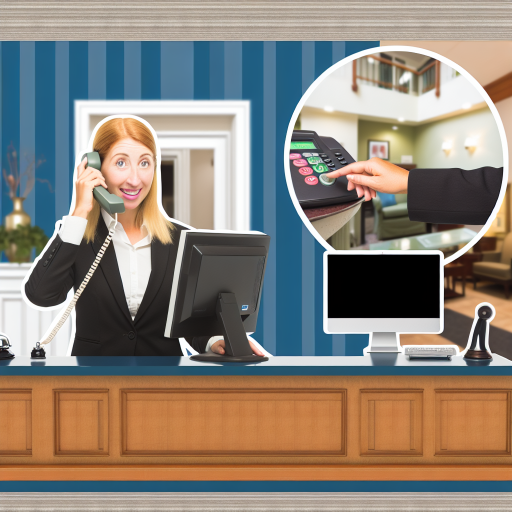Understanding the Role of a Spa Manager in Canada
Overview of Responsibilities
A spa manager supervises daily operations at a spa facility.
This includes managing staff, customer service, and maintenance.
Furthermore, they ensure that all treatments and services meet industry standards.
Staff Management
Managing a team is a critical part of the role.
Effective communication fosters a healthy work environment.
Additionally, spa managers conduct training sessions for staff development.
This ensures that all team members provide top-notch service.
Customer Experience Enhancement
Creating an exceptional customer experience is vital.
Managers often gather client feedback to improve services.
They also develop promotional packages to attract new clients.
Financial Management
Spa managers handle the financial aspects of operations.
This includes budgeting, forecasting, and monitoring expenses.
Ultimately, financial acumen influences the spa’s profitability.
Health and Safety Compliance
Ensuring health and safety standards is crucial in spa operations.
Managers implement protocols to maintain a safe environment.
Regular inspections help identify and address potential hazards.
Marketing and Promotion
Marketing efforts drive customer engagement and retention.
Managers collaborate with marketing teams to create effective campaigns.
Utilizing social media is essential to reach a wider audience.
Essential Skills and Qualifications for Spa Managers
Management Skills
Effective management skills are crucial for spa managers.
They must lead and motivate the team successfully.
This involves overseeing daily operations while ensuring quality service.
Additionally, managers must handle scheduling and resource allocation efficiently.
Strong decision-making abilities support smooth operations during unforeseen circumstances.
Customer Service Expertise
Excellent customer service is at the heart of spa management.
Unlock Your Career Potential
Visualize a clear path to success with our tailored Career Consulting service. Personalized insights in just 1-3 days.
Get StartedSpa managers should ensure guests feel valued and cared for.
They must listen actively to client feedback and resolve complaints promptly.
Moreover, building lasting relationships with clients can foster loyalty.
Consequently, a strong focus on customer satisfaction leads to repeat business.
Industry Knowledge
An in-depth understanding of the spa industry is essential.
Spa managers should stay updated on trends and innovations in wellness.
This knowledge helps in selecting appropriate treatments and services.
Additionally, familiarity with products used in treatments enhances guest satisfaction.
It also aids in training staff effectively in the latest techniques.
Financial Acumen
Financial management skills are vital for spa profitability.
Spa managers monitor budgets, expenses, and revenues closely.
They should create financial reports to analyze performance regularly.
Furthermore, managers must devise strategies for pricing and promotions.
This approach maximizes revenue while ensuring competitive rates.
Qualifications and Certifications
Relevant educational background is essential for aspiring spa managers.
A degree in hospitality, business, or a related field is beneficial.
Moreover, certifications in spa management can enhance credibility.
Consider certifications from recognized industry associations such as ISPA.
Additionally, ongoing professional development showcases a commitment to the field.
The Importance of Networking in the Spa Industry
Building Relationships
Networking enables spa managers to build valuable relationships within the industry.
These connections can lead to partnerships and collaborations that enhance services.
Moreover, strong relationships facilitate knowledge sharing and innovation.
Access to Opportunities
Networking provides access to job opportunities and career advancements.
By connecting with industry leaders, spa managers can learn about job openings.
Networking events often feature job fairs specifically for spa professionals.
Learning and Development
Networking fosters environments conducive to professional development.
Attending seminars and workshops allows managers to enhance their skills.
Interacting with peers offers insights into best practices and industry trends.
Building a Personal Brand
A robust network helps spa managers establish a personal brand in the industry.
Through networking, individuals can showcase their expertise and services.
A strong personal brand attracts clients and potential employers alike.
Community Support
A supportive network can provide encouragement and motivation during challenging times.
Networking cultivates a sense of community within the spa management field.
This community can share resources and offer advice on overcoming obstacles.
Delve into the Subject: How to Specialize in High-End Concierge Services
Career Advancement Opportunities for Spa Managers
Exploring Leadership Roles
Spa managers often start by leading small teams.
With experience, they can progress to senior management positions.
Leadership roles may include spa director or regional manager.
These roles offer greater responsibilities and challenges.
Expanding Professional Skills
Continuous learning is crucial for career growth.
Enrolling in management courses enhances strategic thinking.
Certifications in wellness therapies can also be beneficial.
Networking within industry associations fosters valuable connections.
Pursuing Specialized Areas
Some managers specialize in areas like wellness or beauty services.
This specialization can lead to niche leadership roles.
Examples include spa operation specialists and wellness consultants.
Such roles often command higher salaries and increased job satisfaction.
Seeking Opportunities in Franchise Operations
Franchising is a growing trend in the spa industry.
Spa managers can transition into franchise development roles.
This pathway involves managing multiple locations or training franchises.
It offers unique experiences and professional growth opportunities.
Transitioning to Consulting Roles
Experienced spa managers may consider consulting in the industry.
This path allows for flexibility and diverse project involvement.
Consultants often guide new spas on operations and marketing strategies.
Building a reputation as a knowledgeable consultant can be rewarding.
Engaging in Community and Industry Events
Attending spa and wellness industry events boosts visibility.
Participating in panels or workshops enhances credibility.
These engagements nurture relationships with industry leaders.
Connecting with peers can lead to collaborative opportunities.
Gain More Insights: Training Programs and Certifications for Casino Hosts
Continuing Education and Professional Development in Spa Management
The Importance of Ongoing Education
Continuing education is crucial for spa managers in Canada.
This field constantly evolves with new techniques and trends.
Staying updated ensures managers meet client expectations.
Moreover, education improves leadership and operational skills.
Available Educational Programs
An array of educational programs exists for spa managers.
Professional development courses often focus on management skills.
Many institutions also offer specialized training in wellness and beauty.
For example, the Canadian Spa and Wellness Association provides resources.
Additionally, local colleges offer courses tailored to spa management.
Networking Opportunities
Engaging in educational programs enhances networking opportunities.
Managers can connect with industry peers and experts during workshops.
Such connections often lead to mentorship and collaboration.
These relationships can contribute significantly to career advancement.
Certification and Credentials
Obtaining certifications boosts a manager’s credibility.
Accredited programs often cover essential aspects of spa management.
For instance, certifications in massage therapy or skincare enhance service quality.
Moreover, recognized credentials attract more clientele to the spa.
Staying Current with Industry Trends
Regular workshops and seminars keep managers informed on trends.
These events cover emerging technologies and treatments in the spa industry.
Dive into topics like holistic health and sustainability practices.
Furthermore, participating in webinars can offer flexibility for busy professionals.
Creating a Personal Development Plan
A well-structured personal development plan aids career growth.
Identify specific skills to enhance based on individual goals.
Set attainable milestones within defined time frames.
Regularly review and adjust this plan as necessary.
Ultimately, this proactive approach maximizes professional potential.
Find Out More: Common Challenges Faced by Front Desk Agents
Navigating the Regulatory Landscape for Spa Operations in Canada
Understanding the Regulatory Framework
Canada’s spa industry operates under various regulations.
These regulations ensure consumer safety and standardize practices.
Each province may have unique requirements for spa establishments.
Managers must familiarize themselves with local laws and standards.
Licensing and Certification Requirements
Obtaining a license is a key step for spa operations.
Licensing requirements can differ by province.
Generally, spas must meet specific health and safety standards.
Additionally, many practitioners need certifications in their fields.
For instance, estheticians and massage therapists often require specific training.
Health and Safety Compliance
Health regulations play a crucial role in spa management.
For example, spas must adhere to sanitation standards.
They must also implement infection control measures.
Regular inspections help ensure compliance with these standards.
Failure to meet health regulations can lead to penalties.
Consumer Protection Laws
Consumer protection is vital in the spa industry.
Transparent pricing and clear communication of services are essential.
Clients should understand their rights regarding treatments and services.
Managers must educate staff about these laws.
Environmental Considerations
Environmental regulations are also relevant to spa operations.
Spas should implement sustainable practices where possible.
This can include using eco-friendly products and reducing waste.
Compliance with environmental laws promotes long-term viability.
Keeping Up-to-Date with Changes
The regulatory landscape is constantly evolving.
Managers should stay informed about regulation changes.
Attending industry seminars and workshops can be beneficial.
Networking with other professionals aids in sharing knowledge.
Incorporating these practices fosters a compliant and thriving spa environment.
Delve into the Subject: Essential Traits for Thriving as a Canadian Casino Host

Leveraging Technology for Enhanced Spa Management
Importance of Technology in Spa Management
Technology has become essential in spa management today.
It streamlines operations and enhances customer experiences.
Moreover, it provides valuable insights into business performance.
Utilizing Spa Management Software
Investing in spa management software improves efficiency significantly.
This software automates scheduling, billing, and inventory management.
As a result, staff can focus more on customer service.
Features to Look For
When selecting software, consider features that suit your needs.
- Online booking capabilities streamline reservations.
- Customer management tools enhance personalization.
- Reporting features track performance effectively.
Implementing Digital Marketing Strategies
Digital marketing plays a crucial role in attracting new clients.
Utilizing social media platforms can broaden your reach.
Furthermore, targeted ads can connect with potential customers directly.
Creating Engaging Content
Content marketing builds brand awareness and customer loyalty.
Consider sharing wellness tips and promotions on your website.
This approach engages customers and encourages repeat visits.
Enhancing Customer Experience
Integrating Customer Feedback Tools
Feedback tools are vital for understanding customer preferences.
Encouraging reviews can improve service offerings based on client input.
Additionally, surveys help collect valuable insights post-visit.
Using Mobile Applications
Mobile apps enhance convenience for clients.
They allow easy appointment scheduling from anywhere.
Moreover, apps can send reminders and updates directly to clients.
Benefits of Mobile Applications
- Increased user engagement boosts customer loyalty.
- Enhancements in communication streamline notifications and promotions.
- Access to exclusive offers via the app encourages downloads.
Staff Training and Development
Embracing Technology for Training
Technology can revolutionize staff training in spa settings.
Online training programs ensure convenience for employees.
Furthermore, virtual simulations provide real-world experience safely.
Continuous Learning Opportunities
Encouraging ongoing education helps staff stay updated.
Workshops and webinars expand knowledge about industry trends.
As a result, well-trained staff enhances overall service quality.
Measuring Staff Performance
Utilizing performance management tools evaluates staff efficiency.
Regular assessments encourage development and accountability.
Ultimately, this process contributes to operational excellence.
Effective Marketing Strategies for Spa Managers
Understanding Your Target Market
Identifying your target market is essential for successful marketing.
Research different demographics to better understand their needs.
This insight allows you to tailor your services effectively.
Consider conducting surveys to gather direct feedback.
Utilize social media analytics to track audience engagement.
Building a Strong Online Presence
Creating a website is crucial for attracting new clients.
Make sure it highlights your unique services and promotions.
Additionally, effective SEO strategies can improve visibility.
Regularly update content to retain audience interest.
Include client testimonials to build trust and credibility.
Utilizing Social Media Platforms
Engaging on social media can significantly boost visibility.
Platforms like Instagram and Facebook are ideal for showcasing treatments.
Share high-quality images and videos to attract potential clients.
Host contests or giveaways to encourage user interaction.
Consistent posting keeps your spa fresh in followers’ minds.
Implementing Loyalty Programs
Loyalty programs can enhance client retention and satisfaction.
Offer discounts or rewards based on client usage.
This approach encourages repeat visits and higher spending.
Promote these programs through all marketing channels.
Networking and Collaborations
Establishing partnerships with local businesses is beneficial.
Collaborate with health clubs or wellness centers for mutual promotions.
Attend local events to network and gain visibility.
These connections can lead to referrals and new clientele.
Consider hosting joint workshops for additional exposure.
Leveraging Email Marketing
Email marketing remains a powerful tool for spas.
Send regular newsletters to inform clients about new services.
Include exclusive offers to incentivize bookings.
Segment your email list for tailored messaging.
This strategy ensures higher open and click-through rates.
Tracking Success and Adapting Strategies
Consistently monitoring marketing efforts is essential.
Use analytics tools to gauge the success of campaigns.
Adapt strategies based on performance metrics.
Solicit feedback from clients to improve services.
This proactive approach keeps your spa relevant and competitive.
Building a Strong Team: Recruitment and Retention Strategies
Effective Recruitment Techniques
Start by defining the ideal candidate profile for your spa’s needs.
Utilize job boards and social media to reach a diverse pool of applicants.
Attend industry events to network with potential hires.
Implement an employee referral program to encourage recommendations.
Offer competitive salaries and benefits to attract top talent.
Creating a Positive Work Environment
A positive environment fosters employee satisfaction and retention.
Encourage open communication among team members and management.
Recognize and reward employee achievements regularly.
Provide opportunities for professional development and growth.
Implement flexible scheduling to accommodate staff needs.
Retaining Top Talent
Conduct regular performance evaluations to provide constructive feedback.
Establish clear career advancement pathways for employees.
Solicit employee opinions on workplace improvements regularly.
Offer training sessions to enhance skills and knowledge.
Introduce mentorship programs to support employee development.
Building Team Cohesion
Organize team-building activities to strengthen relationships.
Encourage collaboration on projects and initiatives.
Utilize conflict resolution strategies to maintain harmony.
Celebrate team successes and milestones together.
Foster a culture of inclusivity and respect among staff members.




